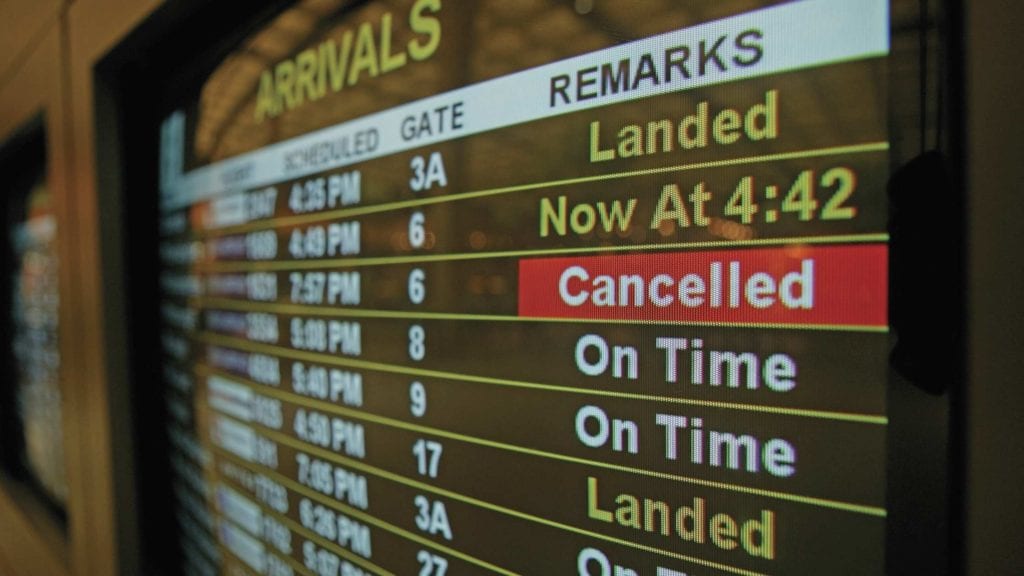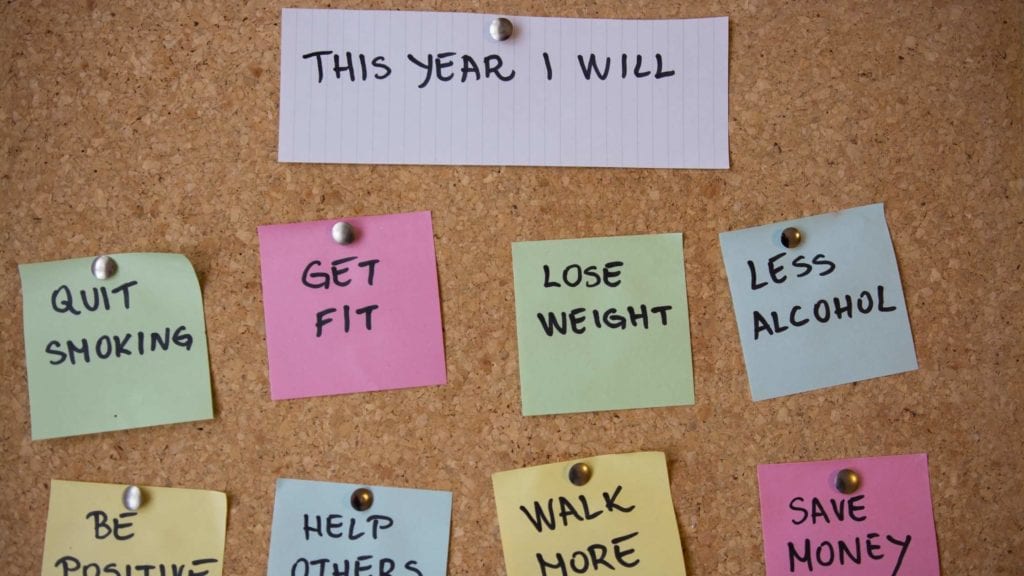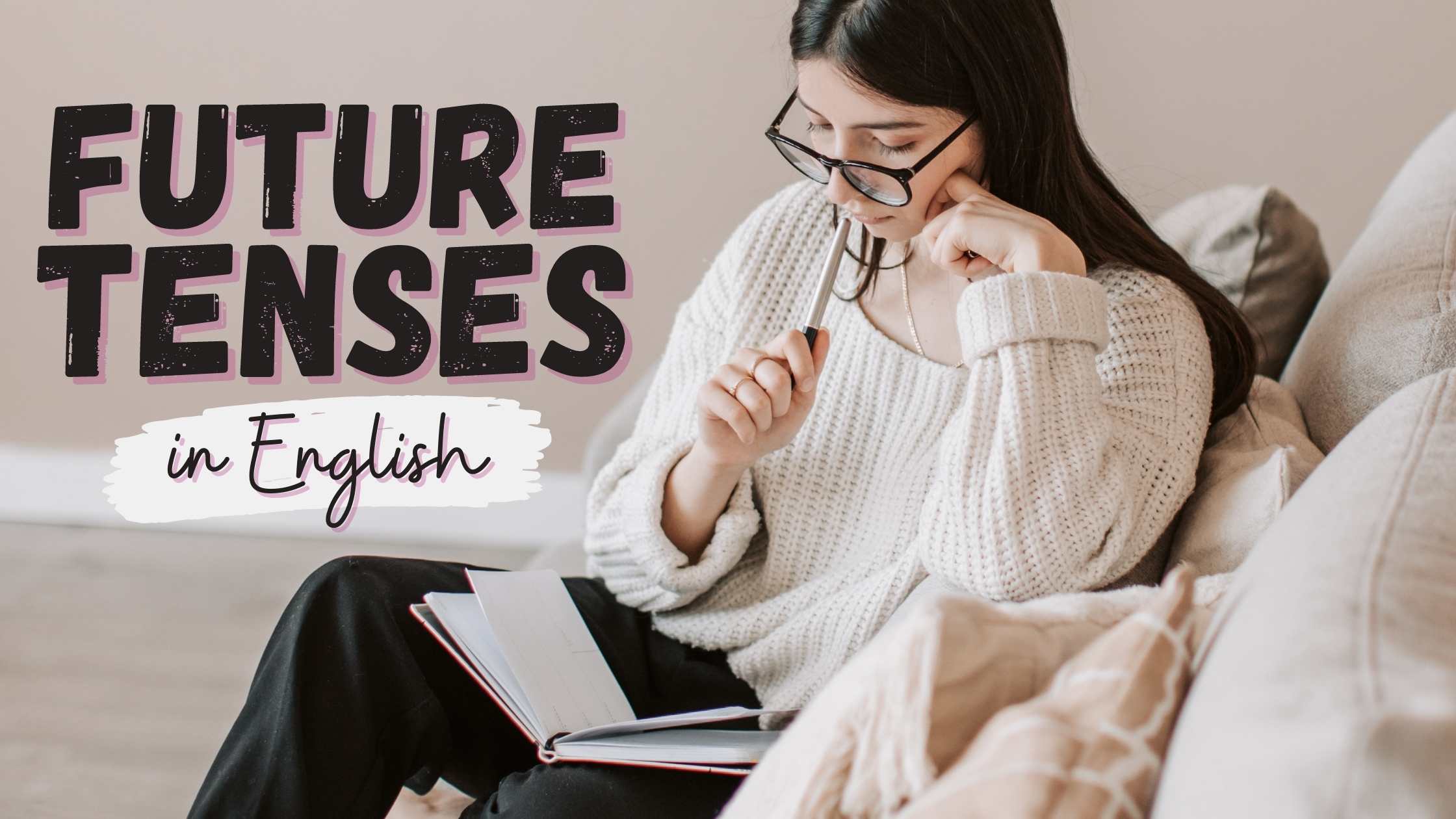How to Use 6 Future Tenses in English Grammar, Plus Exercises and Examples
There is more than one way to talk about the future in English. If you are only familiar with will and going to, keep reading for more ways to create a sentence in the future in English. We’ll also dive into the differences between the future tenses in English. At the end, we will create a list of personal goals for 2021. Are you excited to plan out the next year? We all hope for a better one, right?
The 6 ways to express the future in English
There are three main tenses in English: the past, the present, and the future. We use the present to talk about events that are happening now, like “I am writing this blog post now”, or to talk about routine things, such as “I drink water everyday”. The past is used to talk about something that happened a minute ago, yesterday, last week, 3 weeks ago, or even 3 decades ago — we use it to talk about events that are finished, no matter how long ago.
The future is used to talk about events that will happen on a later date, like “I will travel to Canada next week”. We also use the future to talk about plans, predictions, and intentions.

Most people make the future by using will and going to. However, there are four other ways to talk about things that will happen on a later date. Let’s review all the 6 ways that we can use to express the future in English.
Take a look at the video below for a review of the future tenses in English:
Present simple for future
The present simple is mostly used when an action happens regularly or to express general truths. It is formed by using the verb in its base form (for I, you, we, they) or by adding -s or -es to the verb (for he, she, it). Some examples of sentences in the present simple are “I work every day” and “She cooks at night”.
Something a lot of people don’t realize is that we can use the present simple to express the future. The sentence “The train leaves tomorrow” is an example of that. Therefore, we can say that the present simple for future is used with fixed timetables or scheduled events where the event is the subject of the sentence. Here are a few more examples:
- Julia works at the restaurant tonight.
- My mom arrives at the airport today at 8:30 p.m.
- The plane leaves at 5 a.m. tomorrow.
- Class starts in two days.

Present continuous for future
The present continuous can also be used for the present tense and the future tense. Often, we describe what is happening right now with the present continuous. The sentence “I am eating a slice of pizza now” is an example of that. In order to create the present continuous, we use the verb to be (am, is, are) and a present participle (verb+ing). Here are a few other examples to help you review the present continuous:
- She is cleaning her room now.
- It is raining cats and dogs outside.
- They are buying a new car right now.

We use the present continuous to express the future when we are talking about personal plans or plans with other people. Let’s analyze this following sentence: “I’m meeting my friends tonight”. The adverb of time tonight indicates that the sentence is in the future. Here are a few more examples of how we can use the present continuous to talk about future events:
- I’m having a baby.
- Richard is taking me to the movies tonight.
- We are having dinner on Friday.

Going to future
We use going to when talking about personal plans or intentions for yourself. Imagine you have a week of vacation coming up. It’s possible you have some activities planned, but in general you may have decided that you just want to have fun or relax. This is an intention because you decided it for yourself.
The going to future is formed by subject + verb to be + going to + base form of the verb. Remember that the verb to be changes according to the subject. If you are talking about I, you, we, they, you will use the word are. If your subject is he, she, it, you will use the verb is. Let’s take a look at some phrases with going to to express the future:
- I am going to have fun on vacation.
- She is not going to break up with her boyfriend.
- They are going to try to have a baby.
Future simple (will)
The simple future tense is indeed simple. We just need to add will between the subject and the verb. We never change the verb when using will, no matter who the subject is. The future simple is used for predictions, hopes, offers, promises and spontaneous decisions. Take a look at some phrases that will help you understand how to use will in a sentence to express the future:
- I’m ordering lunch. I will have the tuna sandwich.
- The phone is ringing! Don’t worry, I will answer it.
- It will rain all weekend.
- She will get a job easily.

Future continuous
We use the future continuous when talking about continuous actions in the future. The future continuous is formed by subject + will + be + present participle (verb+ing). You can say something like “I will be driving for the next three hours”. Here are some other examples.
- I will be traveling to London by this time tomorrow.
- She will be running a marathon this Sunday.
- Next Tuesday I will be having dinner with my family in Canada.
- They will be coming to the meeting later this afternoon.
Future perfect
The future perfect is formed by subject + will + have + past participle. It is used to describe a finished event in the future by a fixed deadline. A good example of a sentence in the future perfect is “I will have finished work by 5 p.m.”
Take a look at some future perfect tense examples:
- My dad will have retired by the time I turn 35.
- They will have had their babies before summer begins.
- He will have already cooked dinner when his guests arrive.
New Year’s resolutions: create your list
Are you the type of person who likes to write down goals before New Year’s Eve? I love writing mine down so that at the end of the year I can go back to them and see all the things I have accomplished (and the things I still need to work on, of course). Since 2020 was so unexpected, I’m sure there are a lot of things you want to do in the year that is about to come. Here are some of my personal goals:
- I will exercise more.
- … eat more fruits and vegetables.
- … go out more with my friends.
- … travel to a different country (maybe Thailand).
- … read a book per month.
- … grow more plants and take good care of them.
- … get a dog.

Now, it’s your turn! Write down some things you want to accomplish in 2021. My advice is to put that list somewhere you see every morning –– that way you will be reminded of your goals on a daily basis. It is also helpful to think about actions you need to take in order to reach that goal.
Goal:
I will eat more fruits and vegetables.
Actions:
I will buy fresh fruits and vegetables at the Farmer’s market.
… keep cut fruits in my fridge.
… try different vegetables.
… buy less packaged snacks.
… set a daily reminder on my phone.
If you like technology, you can try some goal-tracking apps to help you reach your goals. Apps like Strides and Way of life can help you by keeping track of your progress and practice using the future tenses in English.
Future tense exercises
You’ve learned all about the future tenses… now you just need to practice! Check out our page with future tense exercises.
We hope you feel more confident when talking about the future after reading this blog post. Remember that there are several ways to express the future: the present simple, the present continuous, will, going to, the future continuous, and the future perfect. Now go work on your new year’s resolutions and study the future tenses in English!


